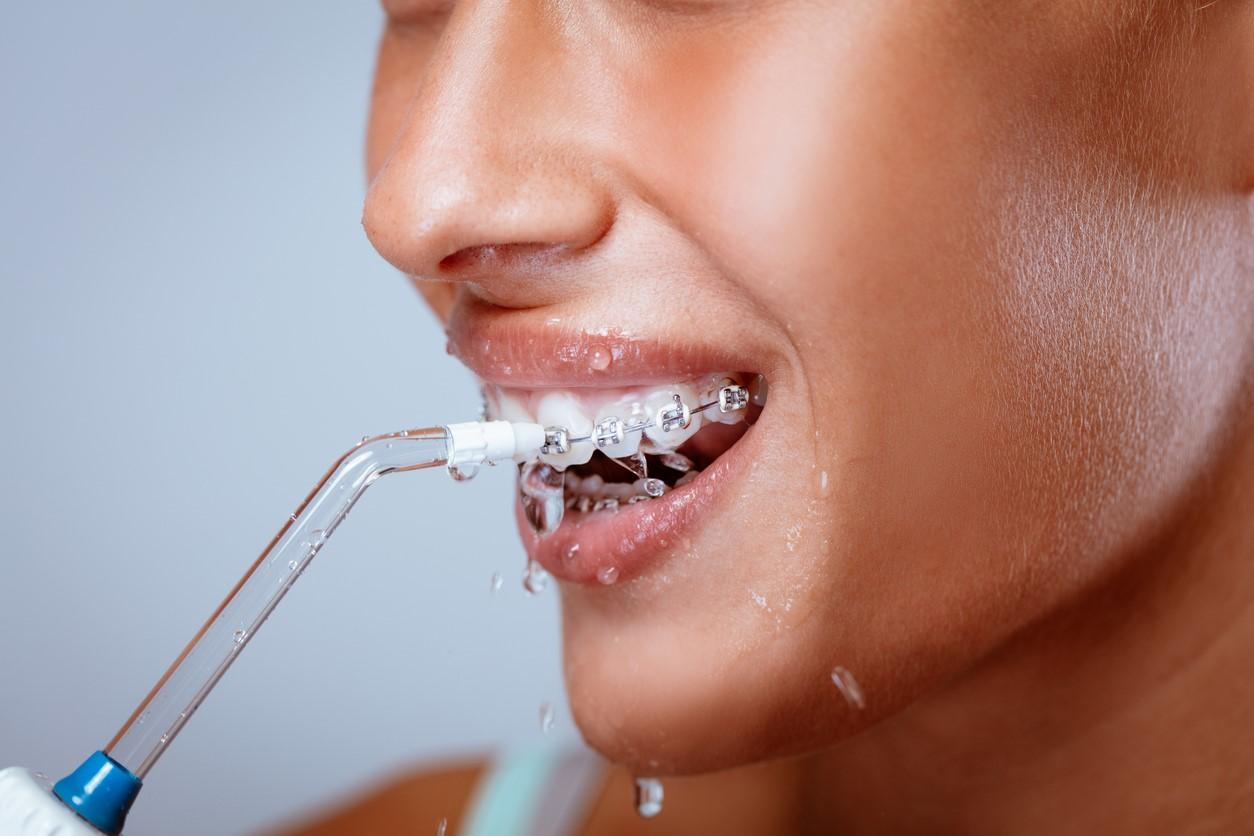
Is water flossing effective?
Peer reviewed by Dr Krishna Vakharia, MRCGPAuthored by Matt BinnyOriginally published 19 Jun 2023
- DownloadDownload
- Share
Brushing your teeth keeps them clean and healthy, and flossing is important to clean hard-to-reach areas. Conventional dental floss is tried and tested but new technologies - such as water flossing - offer convenience and simplicity. We explore if water flossing is as effective as regular methods.
In this article:
Continue reading below
What is water flossing?
Water flossers, also known as oral irrigators, are handheld devices that aim to provide an effective alternative to regular flossing. Water flossing sprays pressurised water between the gaps in your teeth and along your gum line to remove plaque and food particles.
Streams of pressurised water replicate the flossing action to dislodge and wash away food particles and plaque. This helps to prevent plaque build-up, which can lead to more severe issues such as gingivitis and gum disease, also called periodontal disease.
By washing away bacteria, water floss may also help to improve overall oral health and reduce your risk of tonsil stones - also called tonsilloliths - where bacteria and other substances become trapped and harden. .
Patient picks for Dental care

Oral and dental care
How to protect your child's teeth
Today's children are increasingly having to have multiple rotten teeth removed, according to recently released NHS spending data. It's a concerning state of affairs. Whilst access to dentists has been considered to be partly to blame, most authorities feel that the explosion in the sugar content of foods and drinks is the main factor. Urgent action needs to be taken to save our children's teeth.
by Dr Laurence Knott

Oral and dental care
Root canal treatments
A root canal treatment is performed if you have an infection in the centre of your tooth. Root canal treatment is not painful and can save a tooth that might otherwise have to be removed completely.
by Dr Ben Williams, MB ChB
How effective is water flossing?
Pressurised water can effectively remove food particles and wash away plaque between your teeth1. However, water floss lacks the scraping motion that's effective at removing stubborn plaque in tight areas. For this reason, many dentists recommend trying string floss first.
Their are certain groups who may benefit from water flossing over regular flossing. Dr Sameer Patel, clinical director of Elleven Dental, says: "Those who find using regular dental floss difficult, have sensitive gums, or have braces on their teeth may find a water flosser beneficial. For optimum oral health, it is recommended you floss daily."
Will water flossing get rid of tonsil stones?
Tonsil stones are made up of bacteria, mucus, and bits of food and junk that get stuck in the nooks and crannies around your tonsils.
Water flossing can help get rid of some of the bits stuck around your throat before they form tonsil stones and can dislodge the stones themselves. But it is unlikely they will totally prevent them from happening. If you are using a water flosser on the back of your throat make sure it is on a low pressure and if it hurts stop using it.
Continue reading below
Is water floss better than dental floss?
Award-winning dental surgeon Dr Nilesh Parmar says: "Water flossing has recently gained widespread acceptance. As a population, we love our gadgets, and these devices aim to replace the humble dental floss. There is research to show that water flossing is beneficial. However, it is not a replacement for flossing. So don't throw away your floss just yet."
Although both water floss and dental floss produce positive results in trials, when it comes to which is best, the evidence is mixed. There's research to suggest that pressurised water is at least as effective as string-based dental floss at removing food particles and washing away plaque between your teeth1. Some studies even suggest that it's significantly more effective for surface plaque removal2.
On the other hand, data on water flossing is relatively new, and its use for long-term oral hygiene is less clear. Much of the evidence is based on single-use studies that only focus on volume of plaque removal.
Instead of discarding your dental floss, many dentists advise using both techniques in combination for the best results. Well-rounded oral hygiene requires you to remove as much plaque as possible, but also to pay attention to hard-to-reach areas such as tight tooth gaps - which can be more difficult when using water floss.
This is why water flossing is beneficial as an additional tool in your oral hygiene kit. Brushing twice a day, regular flossing, and water flossing will help you protect your teeth from plaque, keeping them healthy and preventing issues such as persistent bad breath.
Further reading
Article history
The information on this page is peer reviewed by qualified clinicians.
19 Jun 2023 | Originally published
Authored by:
Matt BinnyPeer reviewed by
Dr Krishna Vakharia, MRCGP

Ask, share, connect.
Browse discussions, ask questions, and share experiences across hundreds of health topics.

Feeling unwell?
Assess your symptoms online for free